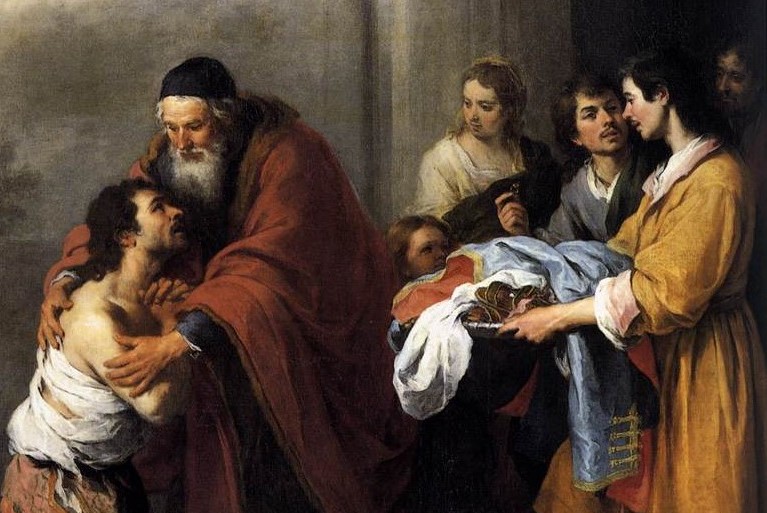That was a trick question. In the teaching of logic it’s called a false dilemma.
Because you really don’t have to be either one.
The prodigal son and the older brother are characters in a parable Jesus told in Luke 15. The prodigal son got his inheritance early, left home, spent it all in profligacy, and ended up in a pig sty. He came to his senses and made his way home into the arms of a loving father who welcomed him with a feast.

The older brother was the faithful one who stayed home and did all the things he was supposed to do. He became angry that he didn’t get a feast when he had been such a good rule-follower.
Of course it’s clear that these two brothers are both in their own way self-centered and missing relationship. (Except that the prodigal returns to relationship, and the older brother doesn’t.) So, often when this parable is preached, the audience is challenged that each one of us is . . .
either the rebellious one, running away from the loving Father, who is waiting for us . . .
or . . .
the self-justified, self-righteous one who feels above sin and points the finger at others.
***
***
Go here to download your free Guide, How to Enjoy the Bible Again (when you’re ready) After Spiritual Abuse (without feeling guilty or getting triggered out of your mind). You’ll receive access to both print and audio versions of the Guide (audio read by me). I’m praying it will be helpful.


Yes! ❤️
Oh, thank you so much for this clear teaching ! Just wonderwonderful.
The Older Brother didn’t have to stay the way he was. He needed to repent for despising Loving Father in his heart and hating Younger Brother. Going in to hug Younger Brother and welcome him home would have been a great first step. Perhaps he did. Jesus leaves the parable open ended.
Definitely–developing and living in relationship
Yes, and Yes… I have been both the prodigal and the elder brother in heart at times (whether ignorantly, comfortably or conveniently). I see the reductionist black or white thinking, and know it is not the only choice. Thankful God meets us and walks with us, away from ourselves, toward Himself in relationship. In both cases, it was about relationship with the Father. And a relationship with the Father changes everything. “But the path of the righteous (just) is as the dawning light, That shineth more and more unto the perfect day.” Prov. 4:18
Exactly! I love that Scripture.
There are periods in my life I probably have been one of the two – or even both… Basking in God’s generous love in one hand, in the other still harboring resentment for those who seem to get more.
Too often the tendency seems to be to assume that if someone is waiting for the Lord for an extended time, be it for healing, some practical needs, or any dream to come true, they must be the ‘older brother’… The label is so easily thrown around. It is like an accusation hanging around… if you are seeking the Lord for something and not happy, then you’re a religious pharisee… and so many sincere souls have been crippled by this. Those, who just want to live for the Lord, and honor Him.. and then they see those, who are living in sin, doing it all wrong, getting married out of wedlock or similar, and then God chooses to bless those ‘willful sinners’ beyond measure with a wonderful spouse and visible ministry…
It is not always self-righteousness, it is just a deep heart cry. ‘Why, God? What are those people doing right that I am not able to grasp? Do you want me to commit sexual immorality too, so I could somehow become more visible and worthy in your eyes?’
Those are questions I have struggled with, I remember vividly on incident ten years ago..It is not that I somehow see myself better, purer, or deserving. There are many mistakes I have committed, and many foolish things and there are many areas where I need God’s grace as desperately as someone who has fell into a sexual sin. (But none of those foolish things have turned into a blessing of marriage or baby.. )
It is often just assumed that singles waiting and seeking the Lord are self righteous pharisees who understand nothing about life and God’s grace, lol.
The enemy would really love to use those accusations to cause some of God’s children to fall into immorality just in order to prove that ‘no I am not a pharisee!’
Oh, you’ve said this so well. Thank you. This is so important.
[…] In The Courtroom, God the Father continues to present as an angry Judge. This is not who He is in the Scriptures. […]